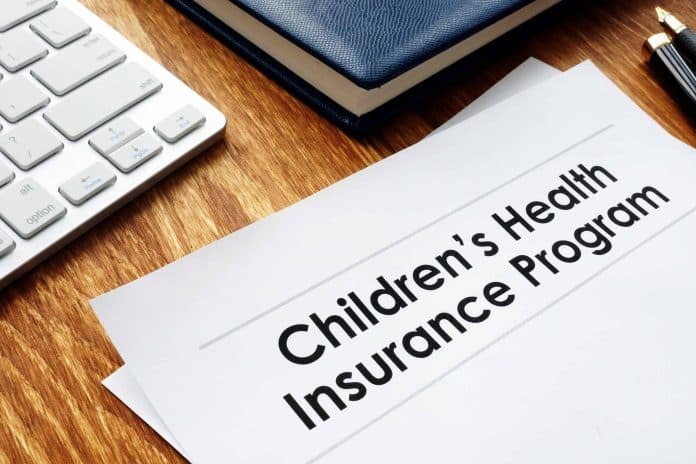
It can be really tough to pay our own medical bills in the U.S. The price of healthcare in America is one of the highest globally, if not the highest. There are obviously many steps we can take to avoid getting sick. Whether you exercise, eat healthily, or get the sleep you need, you sometimes can’t prevent sickness or injuries. When that happens, not only do Americans need to worry about their physical wellbeing, but also how much they’ll end up paying for treatment. And, that’s all on a personal/individual level.
Now, think of a father and/or a mother. Separately, they need to look out for their health and get healthcare when they need it. Whatever healthcare treatments they receive will most likely come with a hefty bill, unless they have decent insurance coverage. But, things get extra challenging when they need to take care of their kids. Kids get sick pretty easily. As children’s bodies grow they’re still in the process of developing their immune systems, as well as their motor skills. For that reason alone, you can expect kids to get sick and injured more often than the average adult. However, that doesn’t mean that treating kids is exactly cheaper. And that’s what parents have to keep in mind. That’s where the Children’s Health Insurance Program (CHIP) comes into play.
Thankfully, The Government Is Here To Help
The government works on providing federal assistance to as many Americans who need it as possible. Obviously, healthcare in America counts for a big chunk of what the average American will invest their finances in over the course of their lives. The US government wants to help make people’s lives easier. The government focuses especially on those who already struggle financially. That’s why the federal government creates assistance programs. Each of these programs comes with a certain set of benefits and qualifications. In order to receive benefits offered through these programs, candidates must fulfill those qualifications.
So, What’s CHIP?
Among the many assistance programs offered by the federal government are ones that focus on healthcare. The idea behind these programs is to provide ways for Americans to access proper healthcare without falling into debt. Some of these programs will help you pay for your prescription drugs, others may help you for scans/tests. However, the Children’s Health Insurance Program (CHIP) focuses on one thing. You guessed it. Children’s health. Through CHIP, a child can get comprehensive healthcare coverage, including routine check-ups, immunizations, doctor visits, prescriptions, dental/vision care, scans, tests, and emergency services.
As we mentioned before, qualifying for government assistance is key to receiving benefits. Hence, families that want to access CHIP benefits must be eligible for the program. As the program’s name suggests, it aims to provide assistance to children. However, in some cases, the coverage may extend itself to pregnant women as well.
Under CHIP, routine “well child” doctor and dental visits are free. But, you might need to copay for other services. In some states, you also need to pay a CHIP premium. These premiums may vary from one state to another, but they won’t cost more than 5% of a family’s annual income.
Here’s How You Qualify For CHIP
You might find yourself asking “why doesn’t the government just provide all federal assistance to all Americans?” While it’s a valid question, there’s also a very valid answer. All federal assistance programs require an investment of time and money. The US is a big country with over 300 million people. If we assume that the federal government will provide all kinds of assistance to any and all applicants, the workload and budgets involved would be astronomical. That’s why you’ll find that the qualifications for a lot of these assistance programs will focus on helping those most in need.
CHIP, like many other assistance programs, was created by the federal government. However, after developing the program, the federal government delegated the responsibility of operating the program to state governments. State governments will obviously have better ways to operate such important programs locally. That’s why you’ll find that in some states qualifications for CHIP may be different from qualifications required by other states. Say, for example, you’re applying for CHIP in Iowa, and your friend is applying in Florida. There’s a chance that the 2 of you might have to qualify in different ways. That’s because different states have different ways of running things.
CHIP focuses on providing low-cost healthcare for families whose incomes are too high to qualify for Medicaid. These families’ incomes must also be too low to afford private insurance.
How To Get In Contact With Someone About CHIP
You can apply for CHIP in any state in the USA. Each state’s program works in close contact with the Medicaid program. One of the best things about CHIP is that it doesn’t work the same way as private health insurance programs. You may apply for CHIP on any day of the year. Check out the following options if you’re interested in applying for CHIP:
- Call 1-800- 318-2596
- You can apply through the Health Insurance Marketplace®. If eligible, your application will go to your state agency. Your state should contact you when they receive your information and process it.
What’s Medicaid All About Anyway?
This is another federal assistance program that aims to address the cost of healthcare in the country. Medicaid focuses on a certain group of people to help low-income individuals and families. When it comes to benefits and qualifications, things are pretty similar to CHIP. Medicaid is also run by state governments, although the federal government created it. That means benefits and qualifications for Medicaid may vary from one state to another. However, there’s a general guideline to help you understand the qualifications for Medicaid:
- US citizens and eligible immigrants only
- You must reside in the state in which you apply for Medicaid
- You must satisfy some sort of low-income status
The Government Wants To Help Another Group Of Vulnerable Americans
We mentioned how children are more prone to catching diseases or injuring themselves. The main reason behind that is that their bodies are not strong enough, and/or their minds are not fully developed. Also, children are not able to earn their incomes, hence will need support from adults to get the care they need. There’s another group of people that face similar challenges. Elderly people also have to deal with bodies that naturally get weaker with age. Moreover, elderly people are prone to developing mental weaknesses as their brains also grow older. On top of that, elderly people are not likely to have thriving careers as most of them would be pushed towards retirement.
That’s why the government has a program called Medicare in place. Not to be confused with Medicaid, which helps low-income Americans. Medicare is a national healthcare program that assists people 65 years old or older. There are some cases in which people under the age of 65 may apply for Medicare. Individuals under the age of 65 who wish to receive Medicare benefits must receive Social Security Disability benefits for 24 months. However, individuals who have End-Stage Renal Disease (ESRD) or Amyotrophic Lateral Sclerosis (ALS, also known as Lou Gehrig’s disease) do not have to abide by the 24-months rule before applying.
Medicare Works In ‘Parts’
As a person ages, the list of diseases they might have to deal with gets longer. The treatments required to treat such diseases may vary widely. When facing a disease, a person might have to run tests, visit doctors, take meds, and/or even go through surgery. That’s why Medicare offers different types of coverage, depending on what the case requires. The way Medicare categorizes the different types of coverage is by dividing them into ‘parts’. It’s important to understand what each ‘part’ is responsible for. It’s quite likely that eligible Medicare candidates may have to pay different premiums for each part. So, here’s what each Medicare part will cover:
- A: Hospital Insurance
- B: Medical Insurance
- C: Medicare advantages (usually offered by private insurance companies enrolled in the Medicare program)
- D: Medicare prescription drug coverage
It’s important to also know that a person may qualify for both Medicaid and Medicare simultaneously. You should take the time to understand what both programs offer, and require so you can get the maximum from both or either.
How You Can Learn About More Federal Assistance Programs
Many folks out there won’t apply for government assistance simply because they don’t know there is any to help them. Programs such as Medicare or Medicaid might be more famous, but many others are not. Another problem is that even if people know about the programs, they don’t know how to apply or if they’re even eligible for them. Luckily, there’s a website called Benefits.gov to help you out. The government created that portal to help you learn about all sorts of federal assistance programs available to Americans. It can also help you narrow down the programs you’re eligible for by answering a simple survey called Benefit Finder.





















